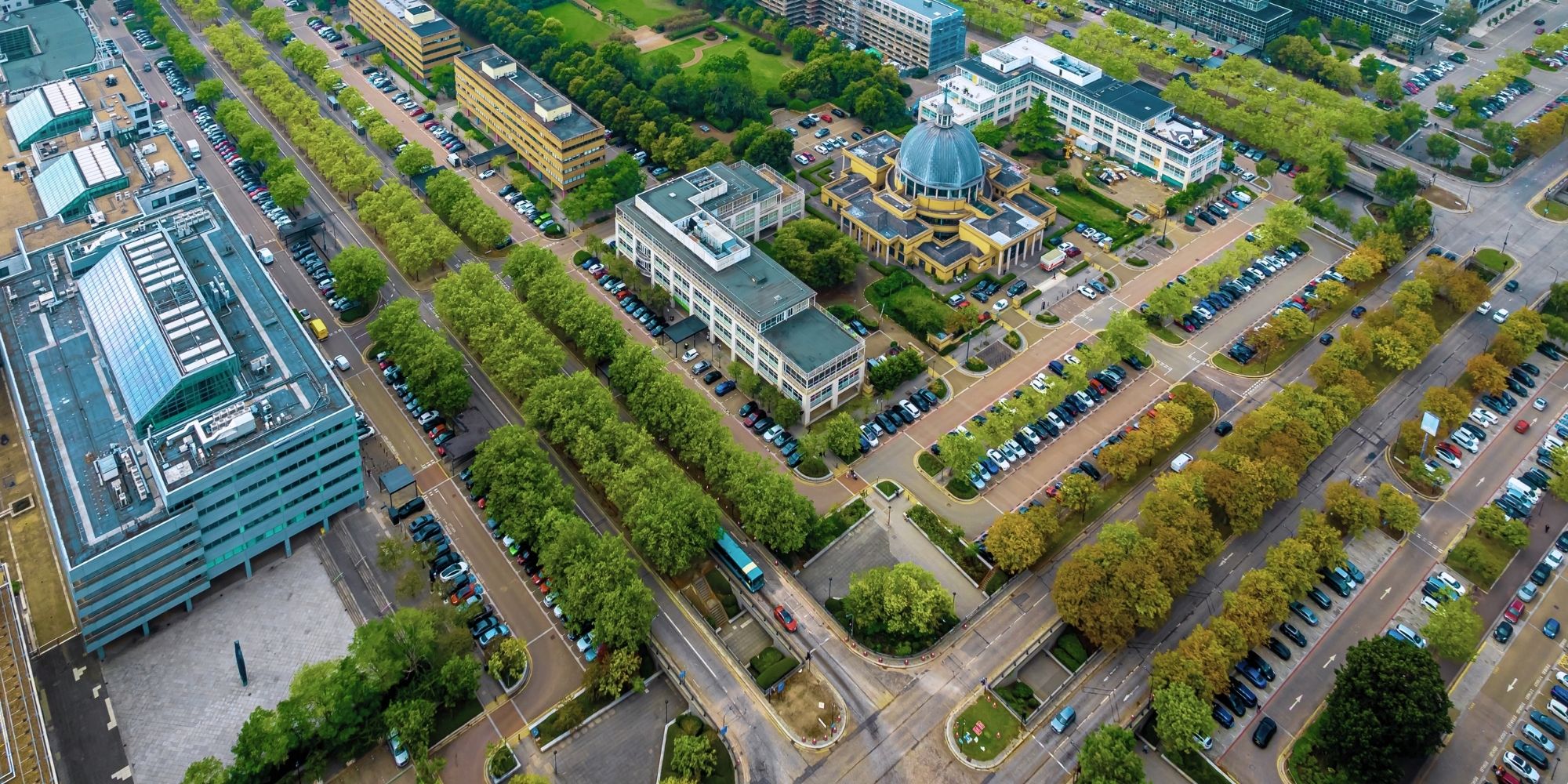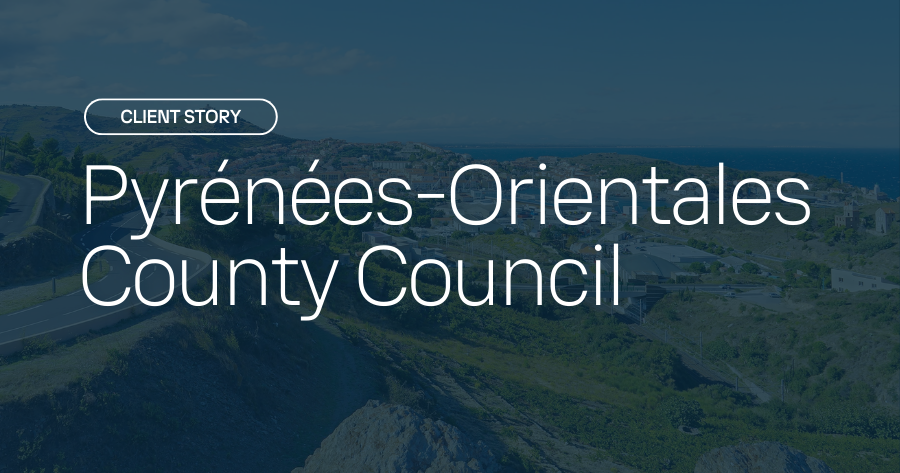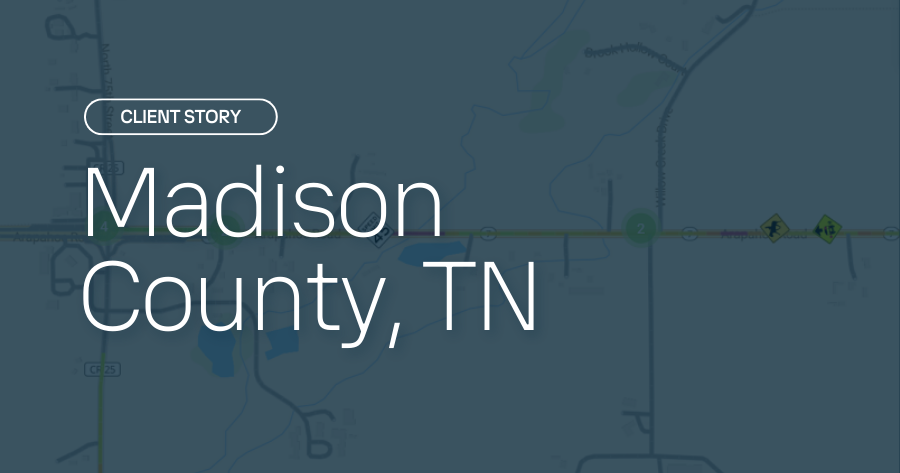The city of Milton Keynes, UK, relied on RoadAI to adapt quickly and confidently when taking a new approach to surface treatment planning.
Milton Keynes, a city in Buckinghamshire about 50 miles northwest of London, is known for its distinctive grid road system designed to keep high-speed traffic flowing around rather than through its neighborhoods. With nearly a quarter of the urban area covered by parkland or woodland, and over 265,000 residents depending on its infrastructure, keeping the network running smoothly requires careful long-term planning. So when the city’s usual road maintenance planning cycle was affected by a change in the maintenance contract in 2024, Milton Keynes City Council (MKCC) turned to a tool they already trusted: Vaisala Xweather’s RoadAI.
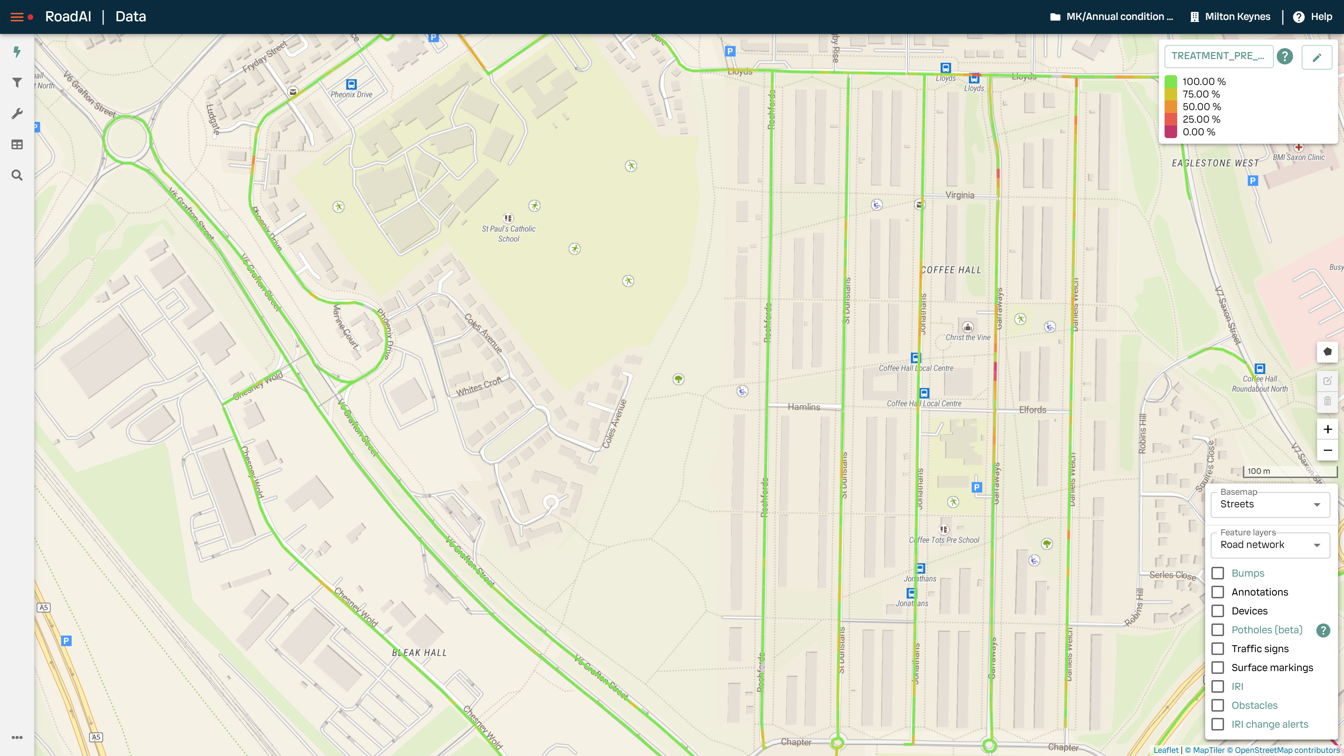
RoadAI dashboard: treatment overlay
In 2024, MKCC’s annual Coarse Visual Inspection (CVI) revealed an increase in unclassified roads slipping from Green to Amber condition, prompting the need for a targeted surface treatment programme. However, the timing coincided with the start of a new service contract term in September, disrupting the regular planning and delivery cycle. With limited time to act before the summer 2025 “laying window,” the highways team needed a fast, self-directed way to inspect, plan, and prioritize.
Turning to RoadAI for clarity and control
MKCC has been successfully using RoadAI for road surface inspections since 2022. In this case, the team, led by Highway Strategic Asset Manager Andy Dickinson, used the solution to develop a phased micro asphalt programme for the city’s unclassified road network. The goal was to select candidate roads for treatment, identify necessary pre-patching, and stay on schedule—all without relying on external procurement or outdated survey data.
Working closely with RoadAI product and customer success teams, MKCC configured a tailored workflow and set up a dedicated layer in RoadAI’s mapping environment to focus on unclassified condition scores. The data was captured conveniently with the RoadAI app, providing accurate, unbiased surface condition data as well as HD video footage.
"RoadAI provides local authorities planning road improvement schemes with a flexible tool that allows up-to-date, instant road condition data. The tool was particularly invaluable when Milton Keynes started its new highways term contract in 2024. It needed to plan a large micro-asphalt programme on a short timescale to allow for pre-patching and programming. In our opinion, this was only possible using RoadAI. It also provided a documented "before" state of the road for recording at an individual asset level for future reference.”
Andy Dickinson, Highway Strategic Asset Manager
The data was then analyzed using the integrated RoadAI treatment reports, first to apply UKPMS parameters and identify surface treatment candidates. MKCC engineers validated the output through field visits and desktop review, then re-ran selected segments through RoadAI’s pre-treatment patching report to generate a patching plan.
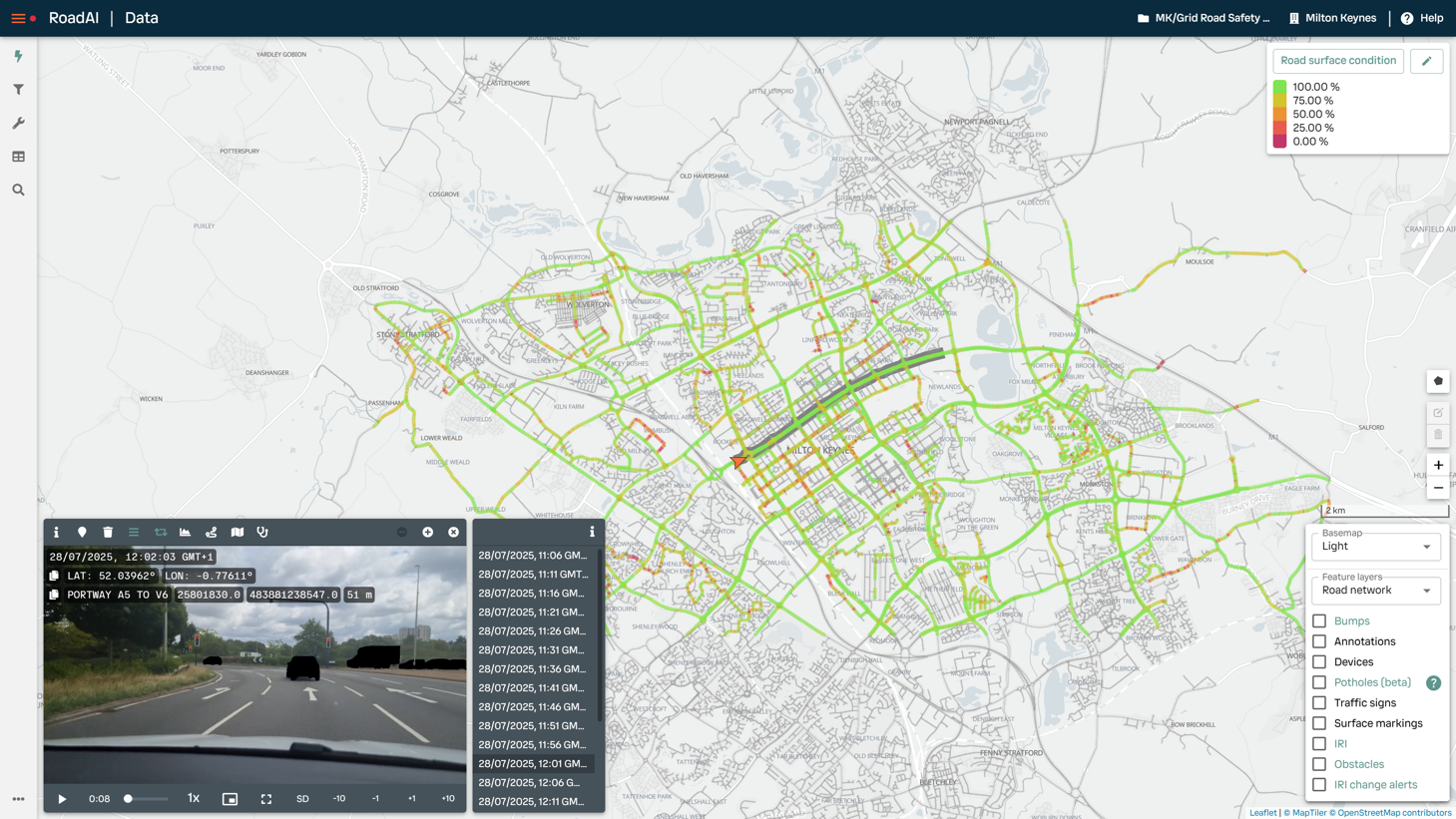
RoadAI dashboard: surface condition overlay
From data to action
Once the defect sites were confirmed, the MKCC team worked with the contractor through joint site visits to finalize and budget the work. RoadAI’s hyperlinked datasets provided immediate access to condition footage and defect records, enabling accurate design planning without time-consuming repeat site visits.
Pre-patching was carried out between November 2024 and February 2025. Surface treatments are scheduled for July 2025. All video and analysis data will be integrated into MKCC’s asset management system (AMX), providing a full before-and-after view of the work and enabling future lifecycle planning.
Results
Process ownership: MKCC retained full control over inspection, selection, and planning, avoiding delays related to external supply and validation.
Timely decision-making: Scheme selection was based on the real condition of the network as of September 2024, not outdated assumptions.
Operational efficiency: AI-driven patching schedules reduced the need for walk-through inspections, compressing planning timelines.
Seamless integration: RoadAI data and video records are now part of MKCC’s long-term AMX asset documentation.
What’s next?
The 2024/25 programme marked MKCC’s first full-cycle use of this methodology. As a next step, the team plans a lessons-learned review to evaluate process efficiency, data performance, and treatment outcomes. The goal is to refine the approach and explore how it might support additional surface treatment types in the future.
MKCC is also working to automate this workflow and embed it into its AMX-based “best value” scheme selection tool, ensuring this data-driven model becomes a repeatable, scalable part of future road maintenance planning.
